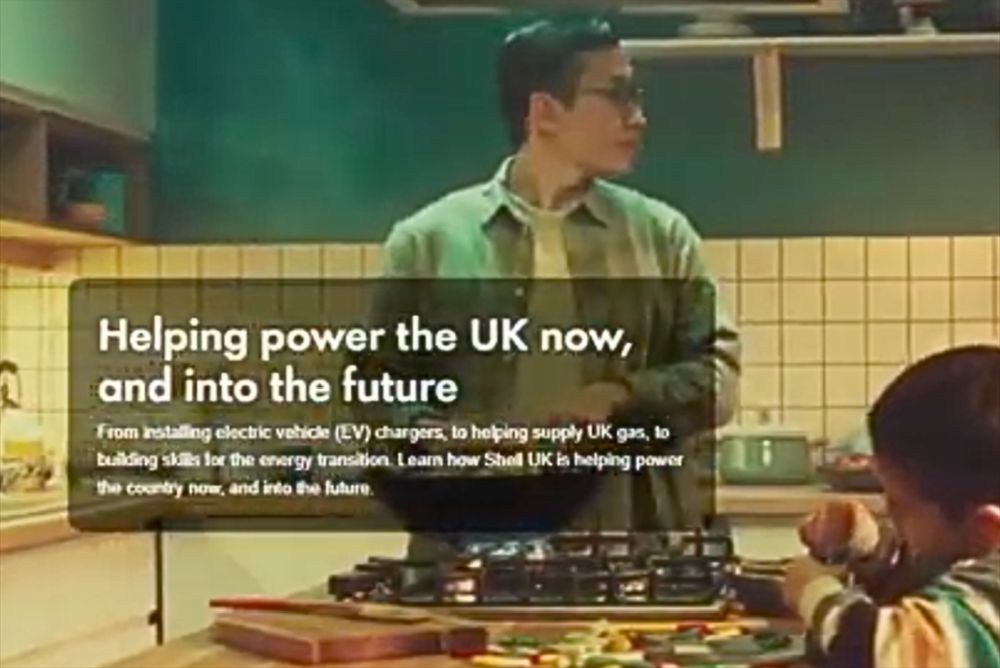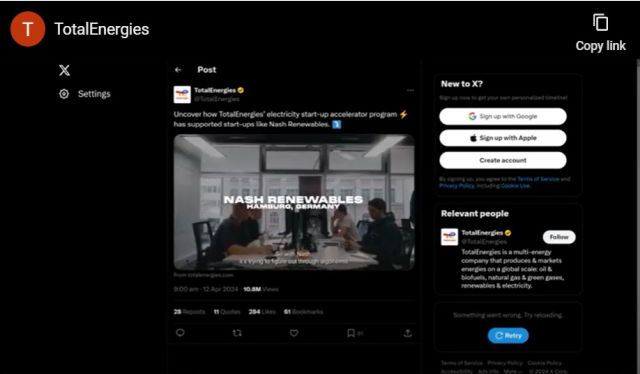- in European Union
- in European Union
- with readers working within the Advertising & Public Relations industries
- within Cannabis & Hemp, Law Practice Management and Privacy topic(s)
On 9th April, the Advertising Standards Authority (ASA) issued three important adjudications concerning ads from Barclays, Shell, and TotalEnergies. Each had been making claims about their environmental credentials and sustainability initiatives. These decisions provide valuable insights into the ASA's expectations for green claims, particularly in high-carbon sectors such as oil and gas, but they also mark a more nuanced approach by the ASA.
We'll start by summarising each decision in turn before delving into a deeper analysis.
Barclays Bank plc: "Powering a More Sustainable Future"
What did the ad say?
Barclays Investment Bank ran a magazine advertisement in The Economist, targeting a financially literate audience of business leaders. The ad featured the headline "POWERING a more sustainable future" and the body copy continued, "Our team of experts provide a broad spectrum of strategic advice and financing solutions to clients across the energy value chain. From M&A to capital raises and risk management, we're helping power the transition to a low-carbon future". This was accompanied by artwork showing members of the Barclays team and their job titles, including the Global Co-Heads of Barclays' Sustainable Banking Group, the Global Head of Barclays' Energy Transition Group and the Co-Head of Energy & Climate Technology. The ad also incorporated a QR code with text which stated, "Start Powering Possible with our insights on nature-based solutions".
What was the complaint?
There was just one complaint from someone who challenged whether the ad was misleading due to the omission of significant information about Barclays' own contribution to carbon dioxide and greenhouse gas emissions. If that complainant was genuinely a consumer, not an environmental activist, then just like the new Pope, Leo XIV, I'm a Catholic. (Spoiler alert: I'm not.)
What was the ASA's assessment of the ad?
The ASA considered the context and audience of the ad, noting that even though The Economist may be read by a general audience, it is a business-to-business communication aimed at senior leadership within corporate, government, and institutional bodies. These are people who buy The Economist to avoid the social embarrassment of finding themselves sitting on a plane next to the modern-day equivalent of Henry Kissinger, and having nothing of interest to say about the geo-political and economic issues of the day. The horror!
The ad's claims were interpreted as relating specifically to the services offered by Barclays Investment Bank to help clients transition to lower-carbon models, and which are not available to retail customers, rather than as a statement about Barclays' overall environmental impact or its own carbon footprint.
What did the ASA Council decide?
The ASA found that the ad did not make absolute or unqualified environmental claims, only comparative ones about a more sustainable future. In addition, the basis for the claims was clear and verifiable through examples of Barclays' involvement in green financing and advisory roles.
The ASA concluded that the omission of information about Barclays' overall emissions was unlikely to mislead the intended audience of the great and the good, so the complaint was not upheld.
Shell UK Ltd: "Powering Progress"
What did the ad say?

Shell aired a television advert featuring an engineer installing electric vehicle (EV) chargers, scenes of offshore gas rigs, and a laboratory focused on energy transition skills. The voice-over stated, "It starts with an engineer on a mission to install thousands of Shell EV chargers by 2035. Helping supply more than 20% of the UK's gas ... and investing in people and communities, to build skills for the energy transition ... and before you know it Shell is helping power the UK; now and into the future." A super then stated "In 2023, 68% of Shell's global investments included oil & gas, 23% included low-carbon energy solutions and 9% non-energy products. Shell's target is to become a net-zero emissions (NZE) energy business by 2050". Finally, the strap line appeared stating, "Powering Progress"
What was the complaint?
The ASA received 75 complaints, including ones from environmental advocacy groups Adfree Cities and Carbon Tracker. These complainants alleged that the ad gave a misleading impression of Shell's environmental impact by focusing on green initiatives without adequately contextualising the company's ongoing high-carbon activities. For those of our readers who have been living on another planet and have recently arrived on earth via one of Elon Musk's spaceships, Shell is a well-known and long-established oil and gas company. So well known, in fact, there is a joke about its identity in the 1959 classic comedy, Some Like It Hot. While sitting on a beach, looking out to sea where his yacht is at anchor, Tony Curtis hints at the source of his character's great wealth to impress Marilyn Monroe by simply holding up a shell, to which Marilyn charmingly exclaims, "Shell Oil"!

What was the ASA's assessment of the ad?
The ASA referenced its guidance which states that companies with significant harmful emissions must provide balancing information when referencing environmentally beneficial initiatives. The Shell ad was found to present a balanced view, showing both its lower-carbon activities (such as EV chargers and skills investment) and its ongoing high-carbon operations (such as gas extraction and supply). The superimposed text provided clear, substantiated figures from Shell's annual report, enabling viewers to understand the relative scale of Shell's investments in high- and low-carbon activities. In fact, the approach taken by Shell was like the one that has been used successfully by BP for several years, which resulted in the ASA deciding not to investigate complaints against BP by Adfree Cities. Unfortunately, that decision was made without the formal process of 'No Investigation After Council Decision', so this was only known by the cognoscenti (including our clients). The ASA also noted that the figures used were compliant with international financial reporting standards and that there was no requirement to use EU Taxonomy figures in UK advertising.
What did the ASA Council decide?
The ASA therefore decided that the ad did not give a misleading impression of Shell's environmental impact. The inclusion of investment breakdowns allowed viewers to contextualise Shell's activities, and the ad was not found in breach of the relevant advertising codes.
TotalEnergies SE: "The Roads to Carbon Neutral"
What did the ad say?
TotalEnergies ran a paid-for social media post on X, promoting its electricity start-up accelerator programme and its support for NASH Renewables, a company focused on optimising wind and solar farm design. The introductory caption stated, "Uncover how TotalEnergies' electricity start-up accelerator program has supported start-ups like Nash Renewables". The post had an embedded video with a voice over by NASH Renewables' co-founder, who stated, "There are more options to design one particular wind farm than atoms in the universe. So, with NASH, it's trying to figure out through algorithms what the optimal way to build a wind or solar farm is ...Getting the stamp of TotalEnergies for this new way of thinking, of course, brought our company massively forward." A super then stated, "The roads to carbon neutral...a special presentation by", followed by the TotalEnergies logo and the text "Pioneers for 100 years".
The video featured wind turbines and office scenes, with a voice-over from NASH's co-founder. The ad concluded with the phrase "The roads to carbon neutral – a special presentation by TotalEnergies".

What was the complaint?
This was another complaint by Adfree Cities, who made their favoured argument that the ad was misleading because it omitted material information about the overall environmental impact of TotalEnergies' business activities, potentially giving the impression that the company's operations were predominantly focused on renewables and carbon neutrality.
What was the ASA's assessment of the ad?
The ASA found that, despite targeting the ad at business opinion leaders and those interested in energy and innovation, the audience was broad and likely to include general consumers. The ad's focus on renewables and the accelerator programme, combined with the "Roads to Carbon Neutral" branding, created the impression that a significant proportion of TotalEnergies' business was dedicated to low-carbon activities. In reality, however, 90% of TotalEnergies' 2023 sales were from petroleum and gas products, and only 31.7% of capital expenditure was directed towards low-carbon activities. The ASA noted that the ad was not constrained by space or time and could have included contextual information about the proportion of TotalEnergies' business that remained fossil-fuel based.
What did the ASA Council decide?
It will come as no surprise that the ASA upheld the complaint, ruling that the omission of material information about the scale of TotalEnergies' fossil fuel activities was likely to mislead. The ASA instructed TotalEnergies to ensure future ads about environmental initiatives include clear information about the proportion of their overall business that comprises lower-carbon activities.
So what conclusions can be draw from these three contrasting decisions?
- Without robust substantiation, you are bound to fail.
If you read the whole of the ASA adjudication about Shell, you'll see that the ASA gave very careful consideration to the reliability of Shell's substantiation. In the end, Shell's green claims were given the green light because their substantiation was rock solid.
- Transparency and balance are required.
While it is permissible to highlight green initiatives, such claims must be contextualised with clear information about the company's overall environmental impact to avoid misleading consumers.
These rulings underscore the ASA's expectation that environmental claims must be transparent and balanced, especially those by companies in high-carbon sectors, such as oil and gas companies, as well as the institutions that finance them. The Shell ad followed what is now the established practice of providing the unalloyed, warts and all truth about a company's environmental performance. TotalEnergies, on the hand, shone a green spotlight their long-term aspirations, leaving their current environmental performance in the dark. That was never going to work, and this decision is consistent with a long line of previous ASA decision, not least the upheld complaint against HSBC, also initiated by Adfree Cities, which established that while the bank's claim was literally true, it was misleading by omission.
- Context and media selection are important, even if the ASA is not always consistent!
The ASA concluded that the placement of the Barclays ad in The Economist meant that it was clearly a B2B communication. While B2B ads are still within the scope of the CAP Code, they will be assessed in that context. While this is a welcome decision, the inconsistency with previous decisions is frustrating. For example, in October 2023, the ASA upheld another Adfree Cities complaint about the Spanish energy company Repsol, over an online display ad on the Financial Times website. Fans of Yes, Prime Minister will recall Jim Hacker's observation that The Financial Times is read by people who 'own' the country, a group even further removed from the average consumer than readers of The Economist, being people who live in fear of social embarrassment. It appears that Repsol failed to make the argument that their ad should be assessed in the context of the FT website, so it is helpful to have a decision that demonstrates the importance of the audience in assessing the potential for environmental claims to mislead. Where an advertisement is clearly and narrowly targeted at a specialist business audience, there is greater leeway in the level of contextual information required
- Barclays was given the rub of the green, in more ways than one.
As well as accepting the argument about the readership of The Economist referred to above, the ASA also gave Barclays Investment Bank the rub if the green by accepting that its claims were promoting the bank's consultancy services to business customers only and were not about the overall environmental impact or carbon footprint of the larger Barclays bank group. The omission of that information about the wider Barclays' operation was therefore not considered likely to mislead this sophisticated, business-focused audience. Again, while this more nuanced application of the rules is a welcome development, it does contrast with Shell's treatment in a previous investigation in 2023, although in that case, the ad was for a general consumer audience, not sophisticated business users, like the readers of this blog or lawyers, or even readers who are also lawyers – a doubly sophisticated group.
- If there is a misleading omission from your green claim, the advocacy groups will jump on it.
The list of investigations triggered by Adfree Cities continues to grow. For the most part, their complaints have been upheld. With this set of three complaints, two were originated by the Adfree Cities, being the ones against the energy companies Shell and TotalEnergies, but only the one against TotalEnergies was upheld. Is there a sense that the ASA is becoming more skeptical about their complaints, particularly because the ASA also published their decision rejecting their complaints about the RSPCA on the same day as these three complaints?
- With the CMA's new powers, advertisers like TotalEnergies need to take more care.
The CMA now has powers to take direct action in relation to breaches of the Digital Markets, Competition and Consumers Act, without the need to go to court, and with the ability to impose fines of 10% of global turnover. To be honest, it is surprising that TotalEnergies appear to have failed to learn the lessons of previous ASA decisions, as the adjudication against them did not break any new ground. We know from the CMA's Enforcement Guidelines that one of the triggers for enforcement action is an upheld ASA decision, so TotalEnergies really needs to implement a programme of remedial action to ensure that there are no repeats of these transgressions.
The lessons are clear. First, make sure your green claims and their substantiation are thoroughly interrogated to ensure that they will stand up to scrutiny. Second, if the ASA does launch an investigation into your claims, front load your defense and put your best foot forward to maximise your prospects of success. Third, if a complaint is upheld about your advertising, to avoid this escalating into CMA enforcement action, you must have a plan for remedial action, including an audit of your claims, training, guidance notes and checklist for your staff.
If you are an ISBA member, please join me for an exclusive webinar at 10.30am on 19th June about Understanding ASA Investigations: A Growing Necessity. This event is free, but is exclusively for ISBA members, and spaces must be booked via their portal, here.

The content of this article is intended to provide a general guide to the subject matter. Specialist advice should be sought about your specific circumstances.


